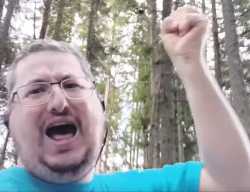>>22672054Lewin felt that a number of forces, a whole “force“the person’s marriage and family rela-
tionships, fears and hopes, neuroses and physical health, work situation and network of friends” controlled the decisions he made. Perhaps because of all the psychic forces which got brought to bear on an individual, Lewin felt that social groups were the most effective means to influence behavior. In the “40s, he and his assistant Ron Lippitt set out to prove this by experimenting on YMCA groups in Iowa City. Once the war broke out, isolated social scientists like Lewin and Lippitt were gradually drawn into the orbit of research on psychological warfare. “The war,” according to Kleiner, “was generally an immense catalyst for social science in American (and England), because it pulled university researchers from their isolated posts. They worked together on real-world problems such as keeping up military morale, developing psychological warfare techniques, and studying foreign cultures” (Kleiner, p. 31).
Also drawn into the psychological warfare orbit was Lewin’s assistant Ken Benne, who, like Blanshard,
had studied under John Dewey at Columbia. Gradually, a consensus emerged among the psychological warriors that, in Kleiner’s words, “social change had to be managed intelligently “not through force, manipulation, or greedy exploitation” Encounter groups were simply the most effective instrument science had yet devised to manage social change through the manipulation of peer pressure.

